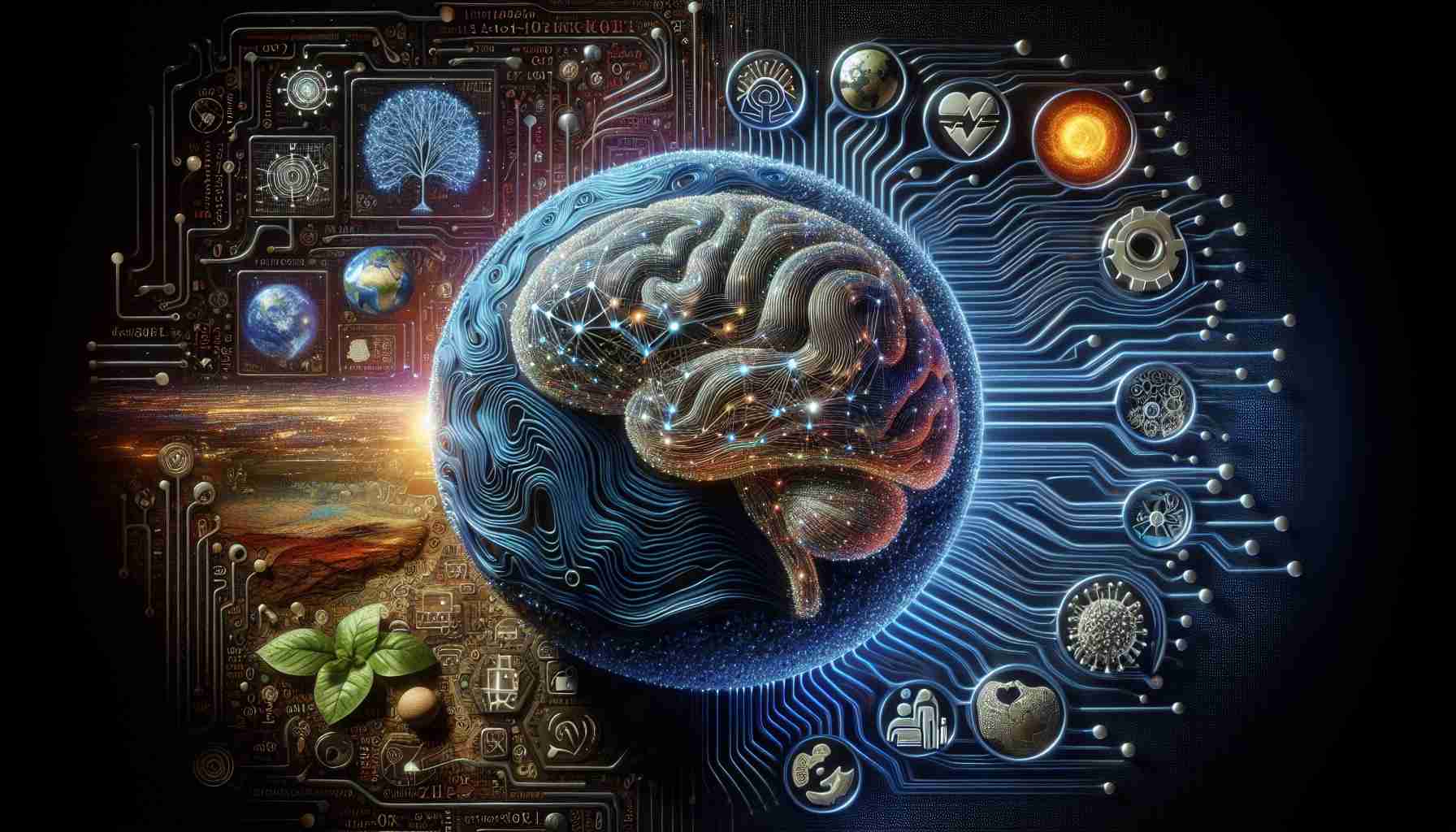Experts in the field of artificial intelligence believe that this technology has the potential to address humanity’s most pressing issues, ranging from global conflict to climate change. However, while the ambition is admirable, it may be premature to expect AI to solve these challenges at present.
According to Michael Littman, a computer science professor at Brown University, the idea of AI completely restructuring the economy or providing comprehensive solutions to complex problems is more of a “pipe dream” than a reality. Instead, AI is currently being employed to enhance the efficiency of existing problem-solving methods, rather than offering revolutionary changes.
At conferences like South By Southwest (SXSW), where discussions on the potential benefits of AI take place, the emphasis often leans towards pragmatic objectives like promoting products. While some panels may have promising titles that hint at the potential of Artificial General Intelligence (AGI) to benefit humanity and prevent a “robot apocalypse,” they may primarily serve as marketing platforms for tech companies.
One such meeting at SXSW, called “Inside the AI Revolution: How AI is Empowering the World to Achieve More,” featured Simi Olabisi, an executive from Microsoft, who highlighted the positive impact of AI on Azure, the company’s cloud service. Olabisi explained how Azure’s AI language feature can capture customer sentiment in call centers, providing businesses with valuable insights into customer experiences.
The concept of AGI, which aims to create machines that are “smarter than humans in general” and can “elevate humanity,” gained momentum with the success of OpenAI’s ChatGPT. OpenAI, a startup predominantly funded by Microsoft, aspires to build AGI. At SXSW, experts like Ben Goertzel, head of the SingularityNET Foundation and the AGI Society, predicted that general AI could become a reality as early as 2029. Goertzel highlighted the potential for AGI to surpass human intelligence by orders of magnitude, thanks to its ability to modify its own source code.
Despite concerns about the implications of AI, speakers at the conference acknowledged that positive disruptions could arise. David Hanson, founder of Hanson Robotics, who designed the Desdemona humanoid robot, believes that AI can contribute to solving global sustainability issues. However, he cautioned that AI’s impact would depend on how it is ethically developed and integrated into society.
Proponents of AI argue that the technology can accelerate the design of sustainable drugs and materials, eventually leading to groundbreaking discoveries that were previously unimaginable. Examples of AI’s effectiveness today can be seen in warning systems for natural disasters, such as tornadoes and forest fires. However, certain challenges still require human action, such as evacuating populations during emergencies or convincing people to vaccinate themselves during pandemics.
While AI can be a valuable tool, its success hinges on human decision-making and the conscious choice to utilize it effectively. Inequities and problems are not caused by AI itself but rather by human actions. Rayid Ghani, from Carnegie Mellon University, stressed the importance of human agency in addressing these issues. AI can provide assistance, but ultimately, it is up to humans to determine how to leverage its potential.
FAQ:
Q: Can AI solve humanity’s biggest problems?
A: AI has the potential to contribute to solving complex problems, but it is not a magic solution. It currently aids in enhancing efficiency and providing valuable insights, but more comprehensive solutions require human decision-making and action.
Q: What is Artificial General Intelligence (AGI)?
A: AGI aims to develop machines that possess intelligence surpassing human capabilities in various domains. It is an ambitious goal that could potentially revolutionize numerous aspects of human existence.
Q: Can AI be ethically developed and integrated into society?
A: Ethical development and integration of AI are critical to ensure beneficial outcomes. Responsible use and adherence to ethical guidelines are crucial in maximizing the positive impact and minimizing potential risks associated with AI.
Sources:
– [SXSW](https://www.sxsw.com/)
– [OpenAI](https://openai.com/)
– [Microsoft](https://www.microsoft.com/)
– [Hanson Robotics](https://www.hansonrobotics.com/)
Definitions:
– Artificial Intelligence (AI): Technology that enables machines to perform tasks that would normally require human intelligence.
– Artificial General Intelligence (AGI): Refers to the development of machines that possess intelligence surpassing human capabilities in various domains.
– ChatGPT: OpenAI’s language model that generates human-like text responses based on given prompts or questions.
– Azure: Microsoft’s cloud service platform that offers various tools and services, including AI capabilities.
FAQ:
Q: Can AI solve humanity’s biggest problems?
A: AI has the potential to contribute to solving complex problems, but it is not a magic solution. It currently aids in enhancing efficiency and providing valuable insights, but more comprehensive solutions require human decision-making and action.
Q: What is Artificial General Intelligence (AGI)?
A: AGI aims to develop machines that possess intelligence surpassing human capabilities in various domains. It is an ambitious goal that could potentially revolutionize numerous aspects of human existence.
Q: Can AI be ethically developed and integrated into society?
A: Ethical development and integration of AI are critical to ensure beneficial outcomes. Responsible use and adherence to ethical guidelines are crucial in maximizing the positive impact and minimizing potential risks associated with AI.
Related links:
– For more information about SXSW, visit their website.
– Learn about OpenAI and their work on AGI at their website.
– Find out more about Microsoft and their AI initiatives on their website.
– Visit Hanson Robotics’ website to explore their advancements in robotics and AI.
The source of the article is from the blog portaldoriograndense.com

